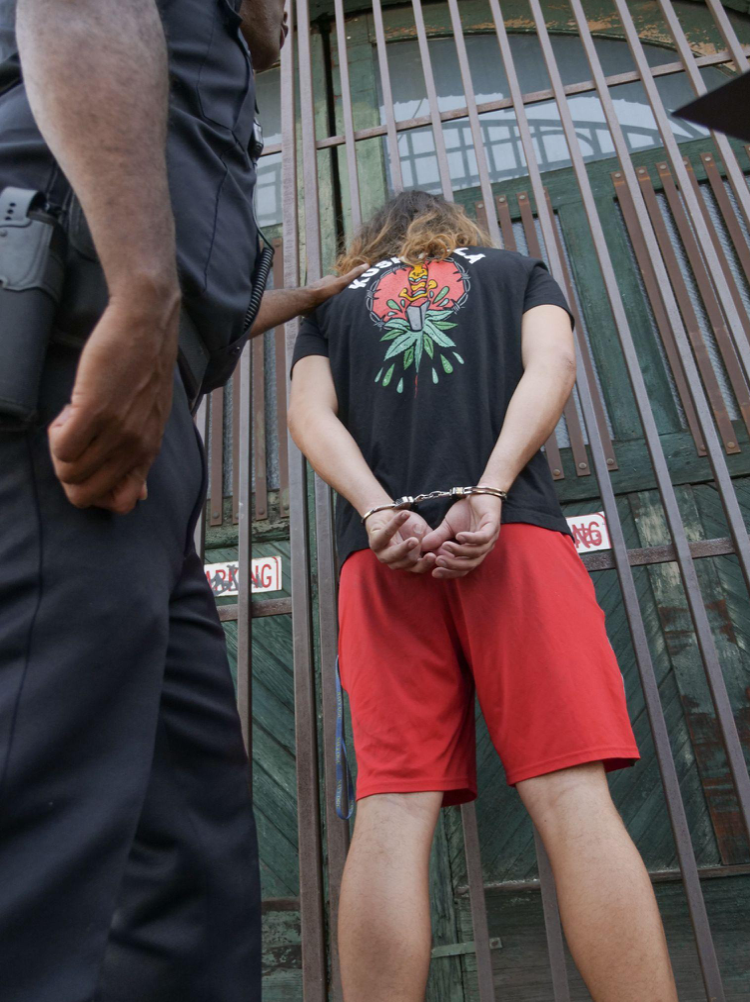While a DUI arrest can be overwhelming, staying calm and taking the right steps immediately afterward can make all the difference.
Being arrested for driving under the influence (DUI) is a stressful and unsettling experience. The moments immediately following an arrest can be confusing, and it’s easy to feel overwhelmed. However, what you do right after the arrest can have a significant impact on the outcome of your case.
From staying calm during the arrest to knowing when to seek legal advice, the decisions you make in these critical moments are crucial. Understanding the steps to take after a DUI arrest can help protect your rights and set you on the path to a more favorable resolution. If you or someone you know has been arrested for a DUI, here’s a step-by-step guide on what to do immediately after the arrest.
1. Stay Calm and Comply with Law Enforcement
The first and most important thing to do after being arrested for a DUI is to stay calm. Being arrested can be a tense and emotional experience, but reacting with anger or resistance can make things worse. Law enforcement officers will ask for your driver’s license, registration, and proof of insurance. You are legally required to provide these documents, but you are not obligated to answer any other questions beyond identifying yourself.
2. Understand the DUI Testing Process
After your arrest, you will likely be asked to take a breathalyzer, blood, or urine test to measure your blood alcohol concentration (BAC). In many states, refusing to take a breathalyzer test can result in automatic penalties, such as a suspended driver’s license, even if you’re not convicted of DUI.
Each state has its own implied consent laws, which mean that by driving on public roads, you’ve agreed to submit to chemical testing if asked by law enforcement. If you refuse testing, you may face consequences such as extended license suspension or fines, regardless of whether or not you were actually intoxicated. However, if you submit to a test and your BAC is over the legal limit, it strengthens the prosecution’s case against you.
3. Request an Attorney Immediately
One of your most important rights after being arrested for DUI is the right to legal representation. Whether or not you feel guilty, it’s crucial to consult with a skilled drunk driving lawyer as soon as possible. A DUI lawyer can help you navigate the legal process, understand your rights, and provide guidance on how to proceed. In many cases, your lawyer can intervene before your court hearing to potentially reduce charges or explore alternatives to a full trial, such as plea deals or diversion programs.
4. Document the Arrest Details
As soon as you are able, start documenting the details of your arrest. Write down everything you remember about the event, including how the traffic stop occurred, the officer’s behavior, whether the arresting officer followed proper procedures, and anything unusual during the testing or booking process.
This information can help your attorney build a defense if there were any violations of your rights or issues with the evidence. If there were any witnesses to the arrest, such as passengers or bystanders, make sure to note their contact information as they may be helpful in your defense.
5. Post Bail or Request a Release

Depending on the jurisdiction, you may be allowed to post bail and be released from custody. If you are unable to post bail, you may be able to request a release on your own recognizance (ROR), which allows you to leave the jail without paying bail, but you must agree to attend all court hearings.
If you’re unsure about the process or your options, your attorney can help arrange your release or advise you on the best course of action. It’s essential to comply with all bail conditions, such as attending any mandatory hearings or meetings with probation officers.
6. Attend Your Court Hearing
After your arrest, you’ll likely be given a date for an initial court appearance. This may be a formal arraignment, where you will be asked to enter a plea of guilty, not guilty, or no contest. It’s important that you don’t make any decisions without legal counsel at this stage. In some cases, your attorney may be able to negotiate a plea deal or other arrangements without you needing to appear in person.
During this phase, your lawyer will review the evidence and determine the best strategy for your defense. Your lawyer may also explore options like attending a diversion program, completing community service, or seeking a reduction in charges.
7. Avoid Driving Without a License
If your license is suspended after the arrest, do not drive until your license is reinstated. Driving with a suspended or revoked license can result in severe penalties, including additional criminal charges. Depending on the outcome of your case, you may be eligible for a restricted license, which allows you to drive to work, school, or other essential locations.
While a DUI arrest can be overwhelming, staying calm and taking the right steps immediately afterward can make all the difference. By understanding your rights, cooperating with law enforcement, and seeking legal help as soon as possible, you can navigate the legal process more effectively. Remember, a DUI conviction can have serious long-term consequences, but with the right support and guidance from an experienced attorney, you can work toward the best possible outcome. Stay informed, follow the proper procedures, and don’t hesitate to reach out for legal help to protect your rights and your future.


Join the conversation!